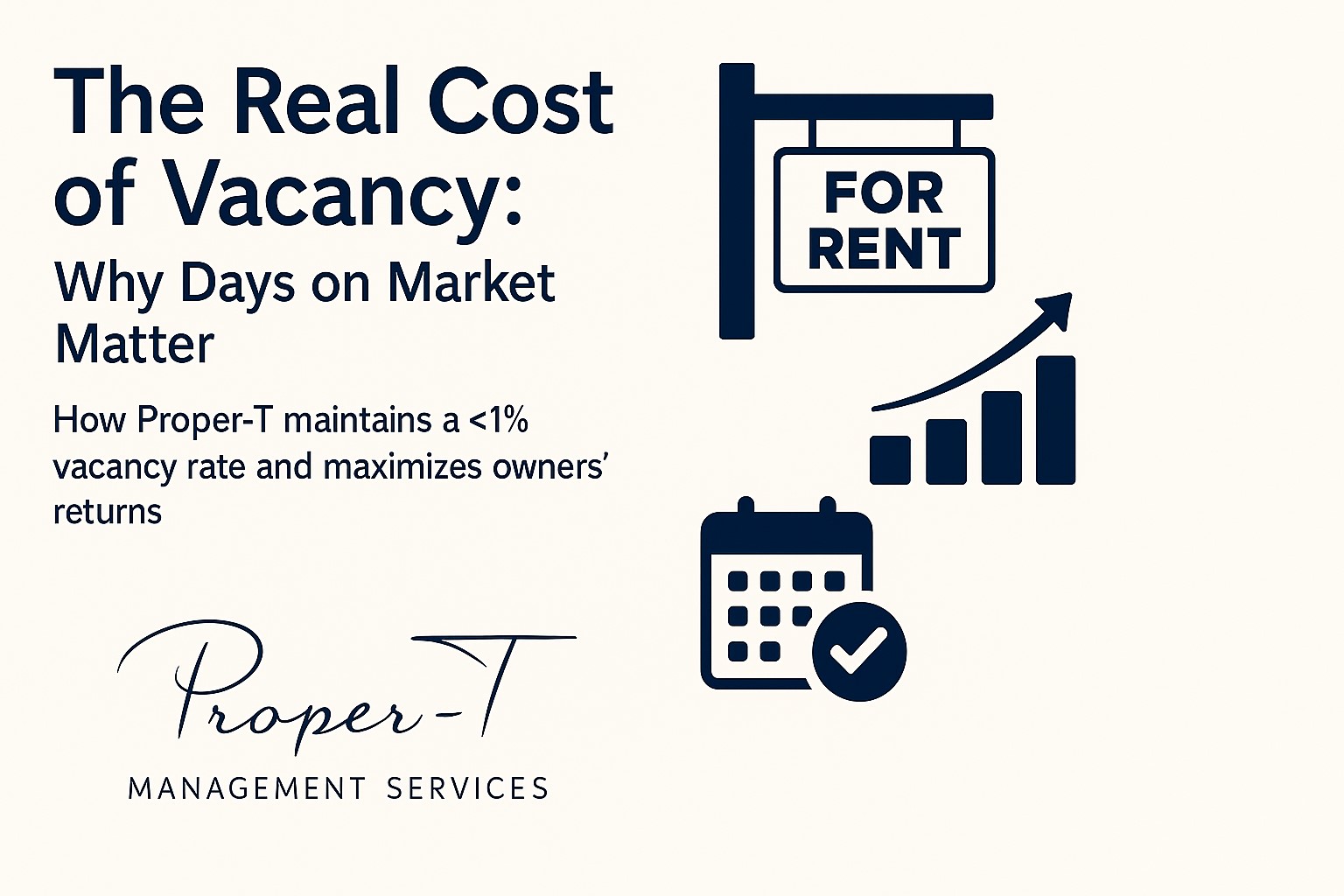The Real Cost Of Vacancy: Why Days on The Market Matter
When property owners are evaluating management companies, many start with a familiar question: “What’s your fee?”
But while price is easy to compare, it often distracts from a more important factor — value.
In property management, value means protecting your returns, minimizing risk, and delivering consistent, reliable service. And nowhere is that more evident than in how a manager handles vacancy.
Vacancy: The Overlooked Expense
Vacancy is one of the most significant drains on rental income, and yet it’s often treated as a given — a “normal” part of doing business.
But maybe it’s time to challenge what’s considered normal.
The industry average for vacancy hovers around 5%, which translates to over two weeks of lost income per unit, per year. Many owners simply accept this — especially if they’ve only worked with managers who take a reactive approach to leasing.
But there’s a better way.
Reactive vs. Proactive Leasing: A Real Example
Let’s say a tenant moves out, and the manager waits until the unit is empty to start marketing — taking photos, posting ads, screening tenants. This reactive approach can easily lead to 30 days of downtime before someone new moves in.
If that property rents for $1,800/month, that’s $1,800 in lost income from a single leasing cycle. Multiply that by several units — or repeat it a couple of times a year — and the numbers escalate quickly.
Now contrast that with a manager who begins marketing before the lease ends, who pre-screens tenants and coordinates turnover vendors in advance. That proactive mindset often cuts vacancy down to a matter of days — not weeks — preserving cash flow and protecting your return.
Why the Lowest Price Can Cost the Most
It’s easy to compare management companies by price. But focusing on price alone can be misleading.
A company that charges a lower monthly fee may seem like the better deal — until they cost you an extra month of rent through slow leasing or poor communication. Suddenly, that “discount” management fee doesn’t look like much of a savings.
Value in property management isn’t just about what you pay. It’s about:
- Return — maximizing income by minimizing downtime
- Reliability — consistent communication, systems, and service
- Responsiveness — addressing issues quickly before they impact performance
A company that delivers on those fronts consistently will protect and grow your investment in ways a cheaper alternative simply can’t.
How Proper-T Approaches Vacancy
At Proper-T, we take vacancy seriously — because we know what’s at stake. Our average downtime between tenants is just 7 days, and we maintain a vacancy rate under 1% — well below what most owners have been conditioned to accept.
That’s not by accident. It’s the result of:
- Pre-leasing strategies that start before a property goes vacant
- Strategic pricing based on real-time market trends
- A vetted vendor network ready to turn units fast
- Clear, proactive communication with both owners and residents
This approach helps our clients avoid unnecessary loss and unlock more consistent returns — without having to chase updates or micromanage outcomes.
The Takeaway
If your manager doesn’t have a plan to minimize vacancy — or if they treat 30 days of downtime as normal — it might be time to rethink what you’re really getting for your money.
Focus less on who’s the cheapest and more on who brings the most value to your investment.
Because in real estate, the most expensive management decision is often choosing the wrong one.


